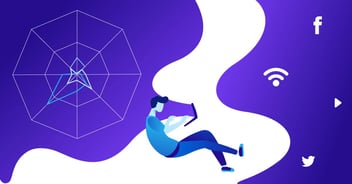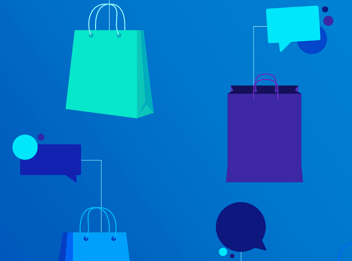A different kind of Kinder surprise: salmonella scare over Easter
It’s never a good time for salmonella, but having infected chocolate on the shelves at Easter is perhaps the worst. Our fresh analysis reveals how users reacted to the bad news across Europe.
Normally, one of the biggest stars of the Easter period on the FMCG market is Kinder chocolate. The brand belongs to the Italian confectionery company Ferrero, and its chocolate eggs, bars, wafers and treat baskets are typical gifts for children (and adults) across the globe. However, this holiday season was different from previous ones, since from the beginning of April, several reported salmonella cases from multiple countries have been linked to the popular treats.
Ferrero even recalled some batches of the chocolates both in Europe and in the United States, while production in a factory in Belgium has been suspended until the source of the infection is investigated and they can prove to meet all food safety rules again.
Of course, such news leaves a heavy mark on a brand’s online reputation, and with Neticle Media Intelligence, we set out to show how it has happened for Kinder chocolate in some European countries. We’ve collected mentions of Kinder in April in four countries: two with confirmed salmonella cases – France and Norway – and two without confirmed cases – Czechia and Hungary – to compare the reputation damage and how the news has spread regardless of actual infections.
The French have been the most outraged
In France, an outstanding 44.7% of mentions were negative in the examined period, and this is also the country that had the highest mention number – Kinder appeared more than 25 thousand times in public posts and comments there.
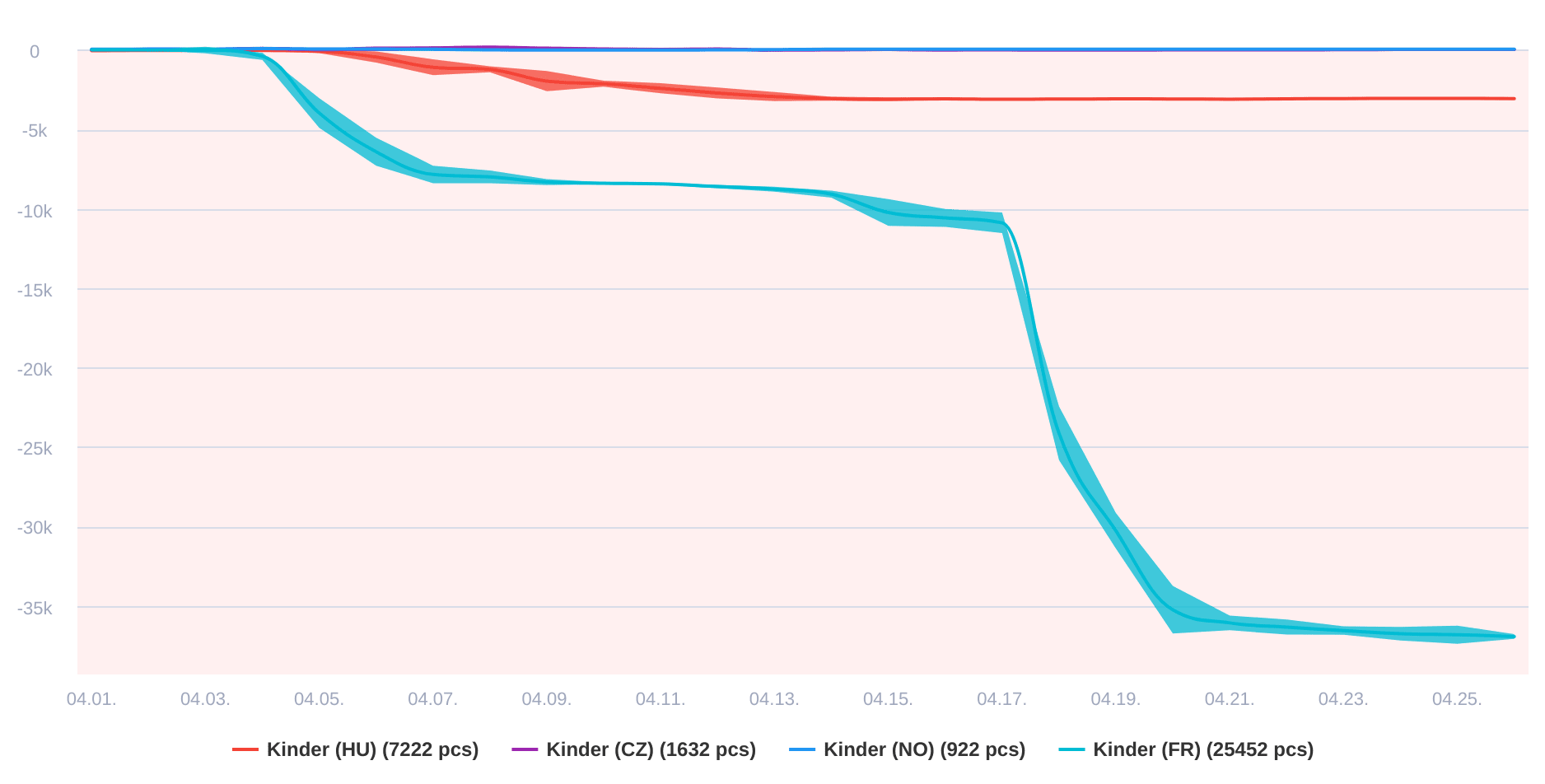
The mood got worse and worse throughout the month, especially on the French web
The most engagement towards the topic in France came from Twitter: one user posted pictures of opened Kinder eggs that had suspicious, whitish circles on the surface of the chocolate, complaining that she had thought the batches remaining on the market were safe. Her tweets have since been set to private, but prior to that, this particular tweet gained 12 thousand retweets and made it into the news as well. Others also warned strongly against the chocolates early on and got a lot of attention.
These tweets however only stoked the fire that was already burning. There was another reason why the salmonella scare got so much engagement and attention in France: it was almost like the cherry on top of a series of different food contaminations in the country. Earlier this year, fatal E. coli cases had been linked to Buitoni-brand frozen pizza: several children spent weeks in hospital after eating them. Then, a raw cow's milk cheese from the Ferme de la Boisette brand sold in supermarkets during the month of March turned out to have listeria contamination, and their recall was also announced in April. Finally, after Kinder, even packets of B&S Cuisine pistachios were recalled because of too much pesticide residue.
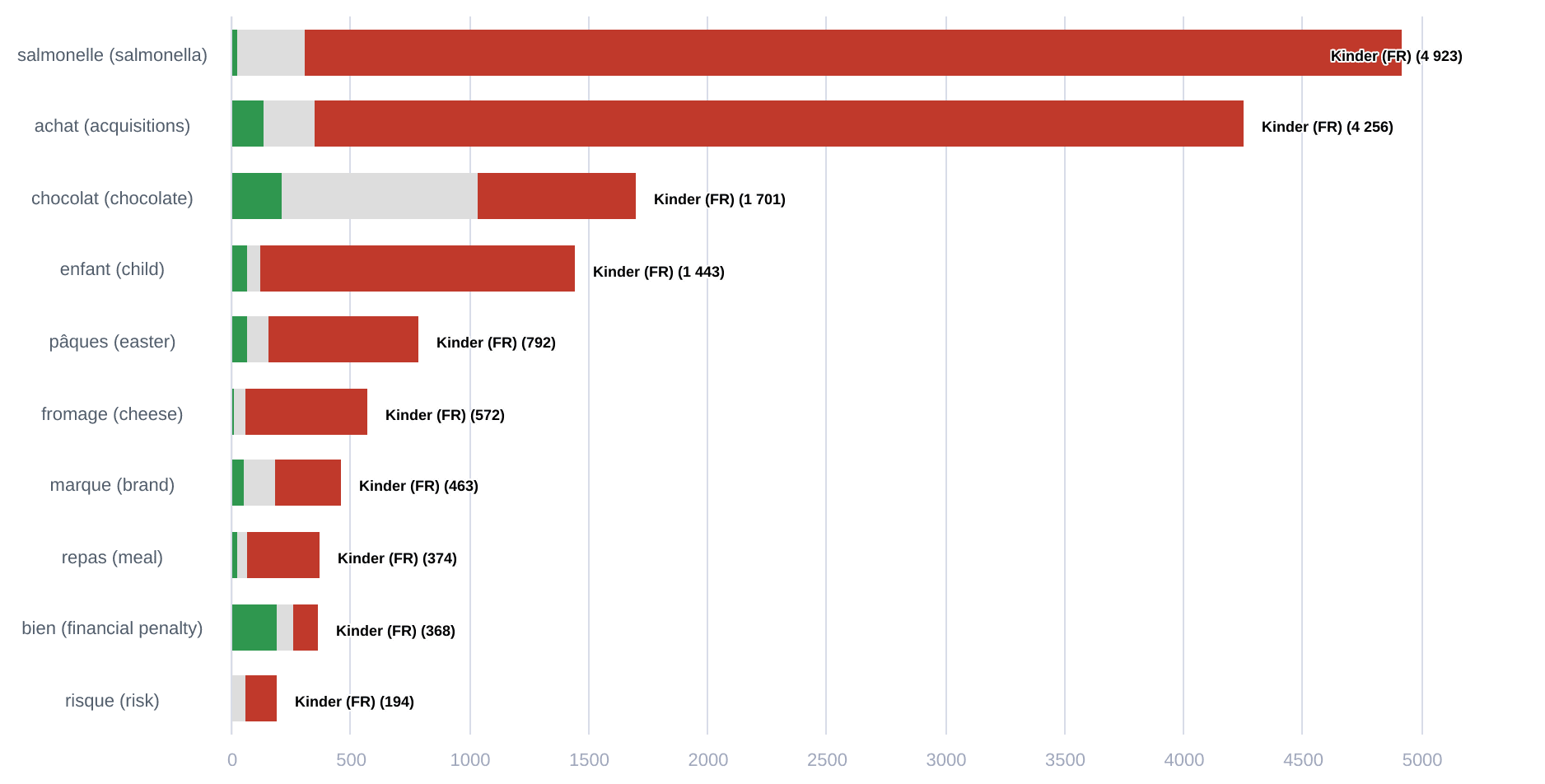 Key topics in France related to the food scandals
Key topics in France related to the food scandals
This popular sarcastic tweet summed up the general mood quite well:
J’ai fait réchauffer une pizza Buitoni pour ma belle-mère. Je pense qu’avec un fromage au lait cru et un petit Kinder Surprise en dessert ce sera parfait 👌
— Xanax ® (@monsieurxanax) April 5, 2022
Tabloids hiked up engagement in Hungary
Hungarians talked a lot about the salmonella scare, too, with over 7200 mentions and 24% of those being negative.
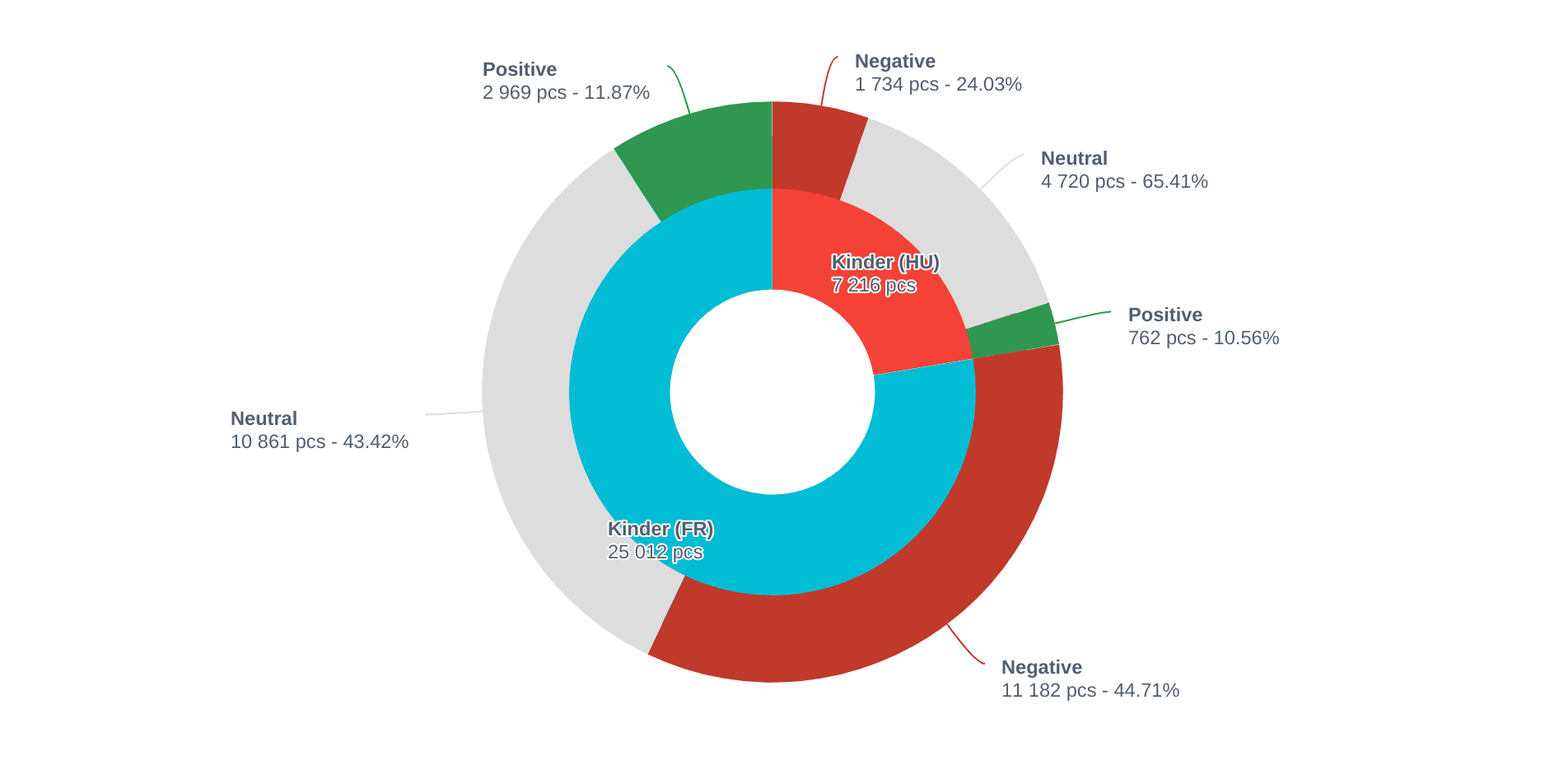
The content that generated the most engagement in the Kinder topic came from TikTok and Facebook in Hungary. The national television’s TikTok channel posted the news and got over 10 thousand likes and 1800 shares, while tabloids played the tragedy card by highlighting the scandalousness and sick children. Baby food advice channel Manó Menü also gave out a warning that many parents shared.
Drama wasn’t people’s first choice in Norway and Czechia
Czech and Norwegian internet users on the other hand were less concerned with the dangerous chocolates, and even though salmonella was a key topic in these countries as well, the outrage just wasn’t as strong as in the other two. In Norway, the posts about the salmonella infection made it onto the most engaging posts’ list but only got a few hundred shares, like this one by TV2 Nyheter, or this one by Dagbladet.
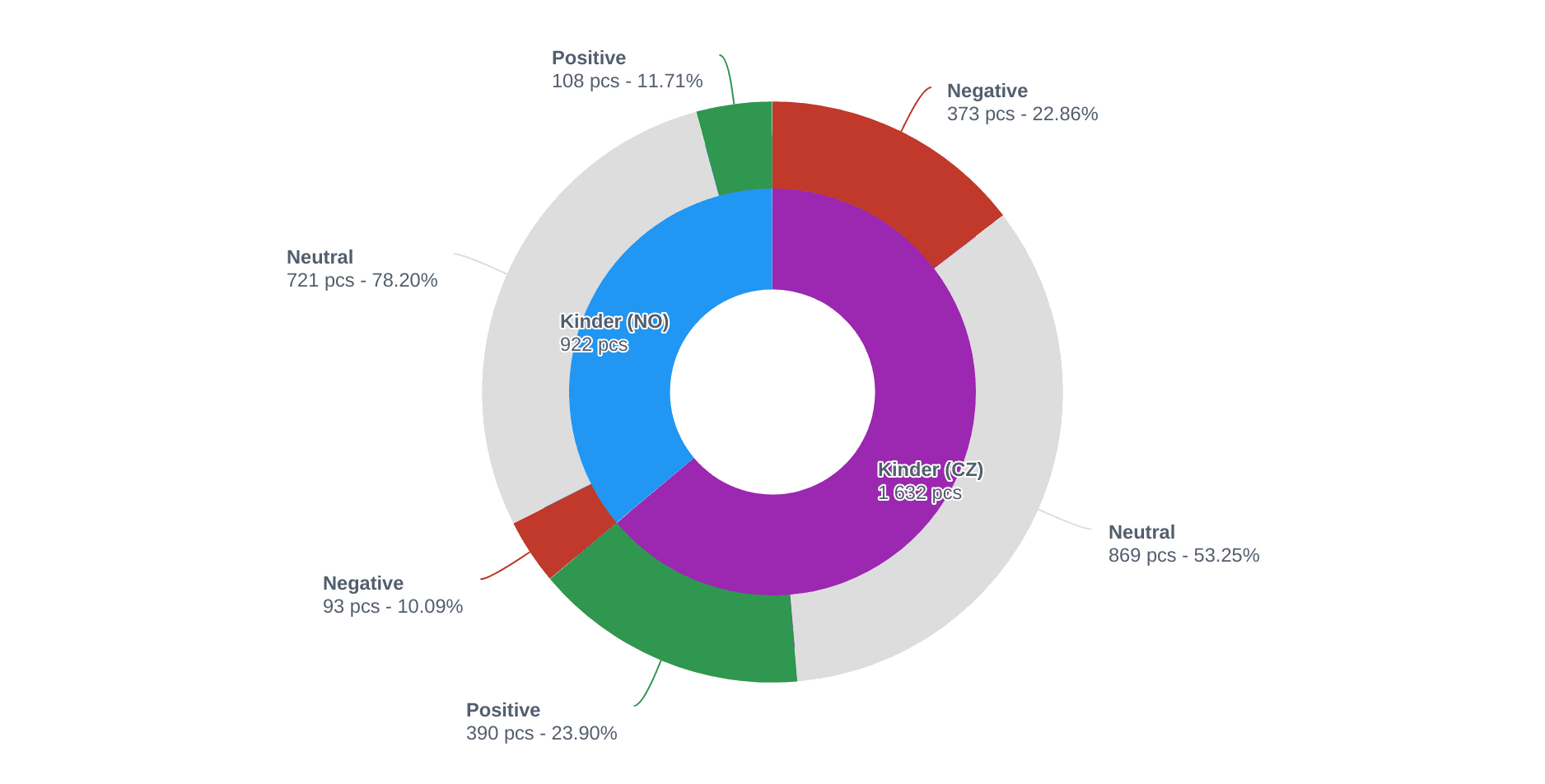
In Czechia, some prominent news sites, like Prima News and CNN Prima sharing the warning about salmonella also gathered around a thousand interactions each, but the reaction here was still smaller than in France or Hungary.
Kinder and Ferrero in France issued official statements on their website as well as on Twitter, apologizing for the situation and offering help to all consumers affected. Statements appeared on the Czech and Hungarian Kinder websites as well. However, the tweets did not have huge engagement, and the statements did little to improve the brand’s online reputation.
Overall, the bottom line is that reputational crises in the online space are influenced by many factors, including other events happening at the same time, and the way the media decides to depict the situation. Outcomes are difficult to predict, but a good social listening tool will reveal all the hidden elements.
Share:
